Building a Team Culture from day one
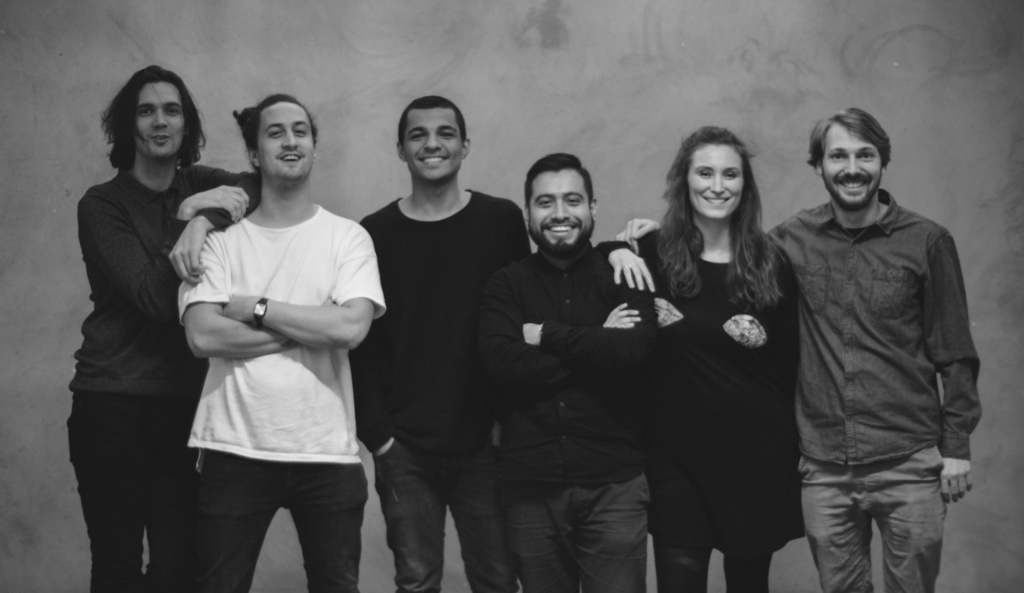
We believe a key ingredient in creating successful businesses lies in its culture. From day one of starting our agency, we put a strong focus on nurturing our team to establish a high level of trust, empathy and connection.
Today we want to share our most important lessons and experiences on how we built our team culture.
Looking back, we feel a little overwhelmed in recalling the first moments together as a team, unaware of how much this experience would shape us. How much we would challenge each other. The emotions this journey would evoke. And yet one thing was clear from the get-go:
“Before we even dared to delve into what we want to be doing, we would reflect on our collective whys’ and carve out our team culture to help us weather the toughest challenges.”
But first things first. On November 2015, six students from the Interactive Art Direction program at Hyper Island in Stockholm, sat down together, driven by a joint curiosity and hunger to start living an adventure. The idea of starting an agency for our student internship had been spooking around in our minds.
Fast forward 4 months later, we would take off as a design and branding agency called Serious Business to work for 5 different clients throughout Europe in a 3 month period with the goal of learning more about the creative industry, building a strong network and ultimately to create outstanding brands and digital products for our clients.
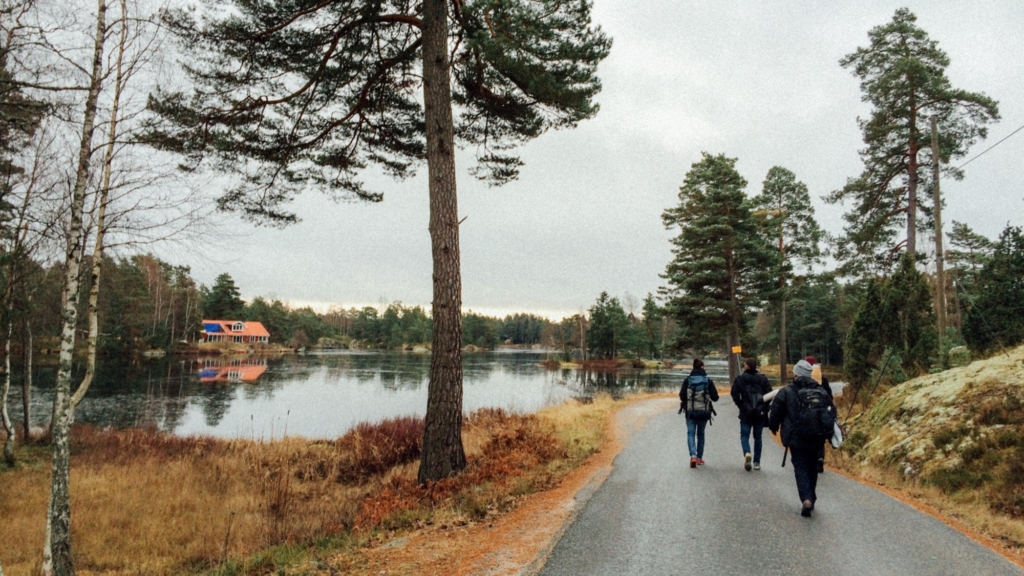
Who hasn’t had negative work experiences, conflicts, a sick feeling in the stomach? We’ve all been there. While day to day work life pushes us to work efficiently, the importance of investing time to nurture team culture often takes a back seat. In our team, we’ve all had negative experiences in previous jobs resulting from either a lack of communication, unresolved conflicts or missing empathy. Nurturing a strong and inclusive team culture is an enduring process that gets shaped by trials, which we were determined to get right before making the crossover to the business end.
But how does one set about building a strong team culture from the start?
As with everything, there is no standard recipe but our education at Hyper Island definitely played a huge role in understanding the methodology of building a strong team culture. As we worked with these methods and tools we discovered our culture to be slowly forming supported by our efforts and trials in developing our own approach.
With time we learned how much building a team, especially in an early stage, pays off eventually when you land in testing situations with your team.
Without further ado, here are 5 steps we how we built our team culture:
1. Talk about the ‘why’ before the ‘what’
We know it’s difficult to stop yourself talking about what product or service you’ll be working on in the beginning, especially if there’s lots of excitement and passion involved. However, we urge you not to focus on talking about what you will be doing but why you’re doing it first. Sometimes we are not even aware of why we are doing things and it’s a valuable self-reflection to understand our own motivations and share them with others. If your why is strong enough, you will figure out how!
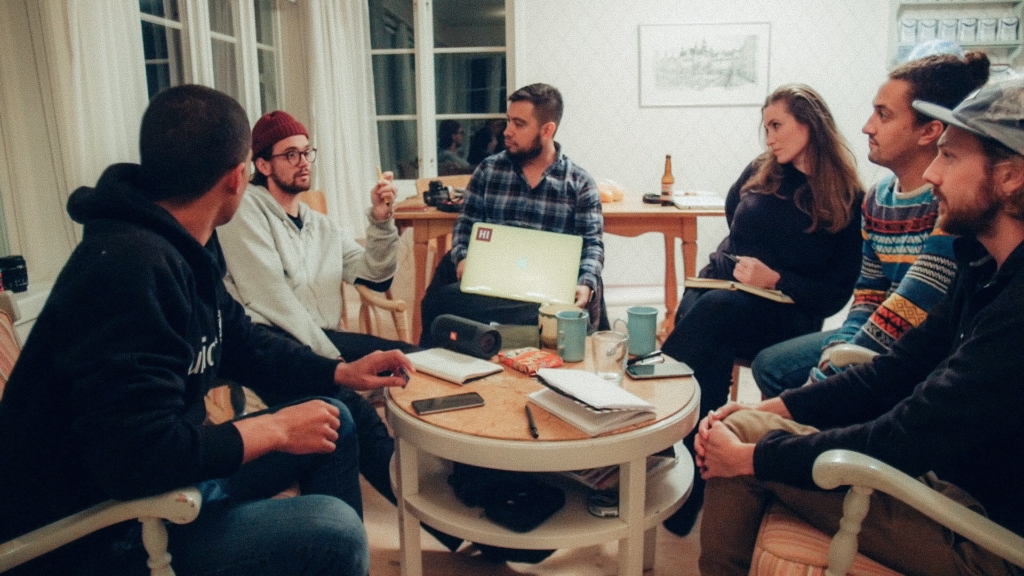
We spent our first few meetings solely on learning about our individual expectations, which quickly helped us bond and gain empathy for each other. Understanding the underlying factors that motivated us to invest in this project gave us a huge boost of energy.
Don’t be afraid to share fears and anything you need support with. Sharing our fears, for example of not being able to spend time with girl/boyfriends and family due to constant traveling for 3 months during our internship, from the first meeting enabled us to set clear expectations and create empathy from day one. There’s nothing worse than realizing your team had completely different expectations down the road and things fall apart.
2. Define your Point of Departure
POD — These three magic words that sound an awful lot like shitty music can really do wonders. After clarifying expectations in the first meetings, it was time for us to be a bit more specific. The point of departure serves as a literal starting point of whatever journey you embark on with your team. A POD can take anything from half an hour to a day and we highly recommend taking the time to do a full-on POD when starting a business.
This meant sitting down individually to prepare our personal and written POD, fielding questions such as what our personal goals with this project were, our purpose, what would make this a success or a disaster for us.
Then comes the time to share as a group. Bear in mind to reserve plenty of time, give everyone space to speak and leave room for questions. Our minds were whizzing from all we learned about each other’s thoughts. Yet that’s the magic, we emerged from this with a much better understanding of where we were heading as a team.
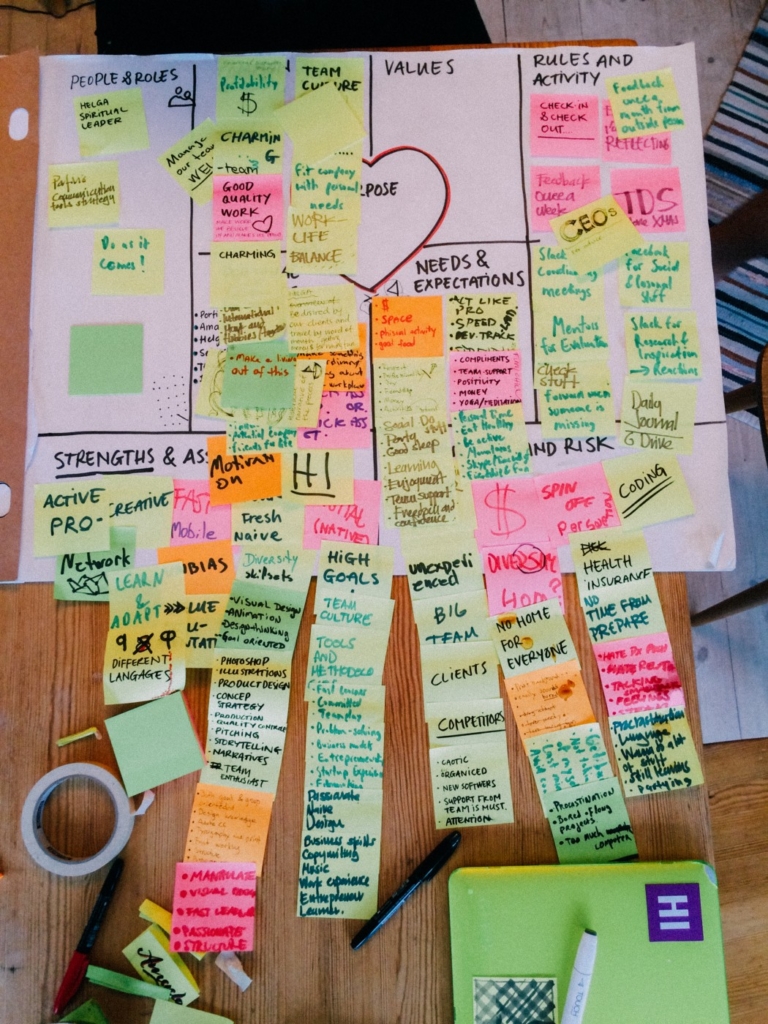
Oh — and if a few months later you ever wonder what it was you originally set out to do, just revisit your POD document and adjust the course or update your POD. We constantly revisit our POD, just recently after being apart for two months over summer. There are lots of different POD tools out there but we can recommend the Team Canvas for starters!
3. Spend time close together
We believe building a team that wants to create outstanding products needs to experience more than just sharing an office and work-agendas. It needs time outside the usual environment and time spent closely together to form empathy for each other and to connect as individuals. So get out there and really get to know each other.
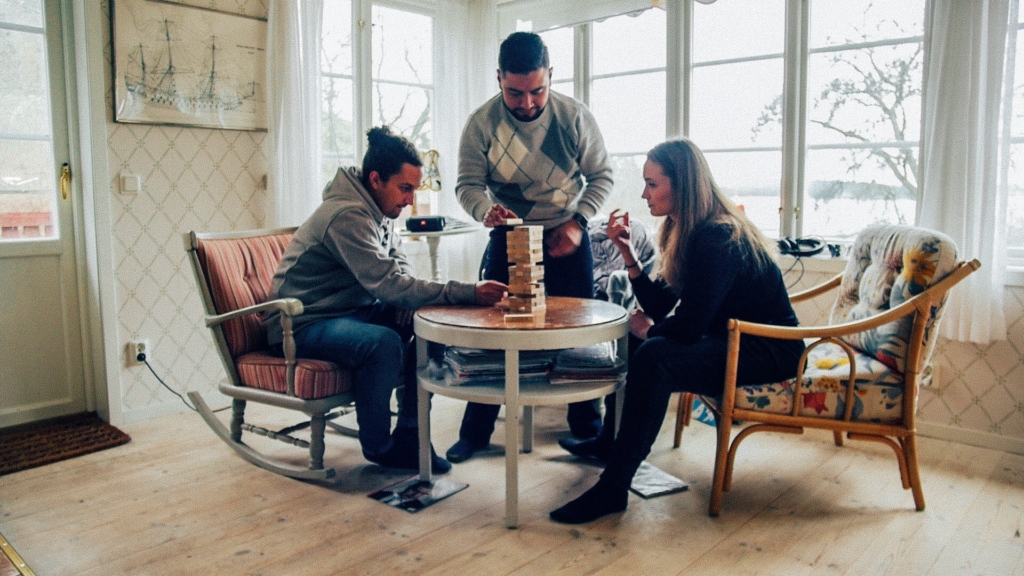
One of our most memorable experiences to this day was a week off to prepare for our internship just after our first few meetings. We figured the best we could do with five days off was to rent a remote cabin out in the beautiful Stockholm Archipelago to build our relationship as friends and as a team. Apart from working with tools such as the POD, we experienced lots of magical moments together that still stick strongly in our memories to this day. Standing on the cliffs overlooking the rough sea with the fresh winds breezing against our faces as we caught a short breath after our hike.
Reflecting on our journey and what was to come in such a unique place really felt like a special bond was forming in our team. We spent the whole week trying to figure racing to find the fastest way to the supermarket through the woods, cooking dinner together, playing board games and simply spending as much time close together as we could. Looking back, this is definitely where it clicked for us as a team. The shared experience bound our team beyond a level that any workplace ever could.
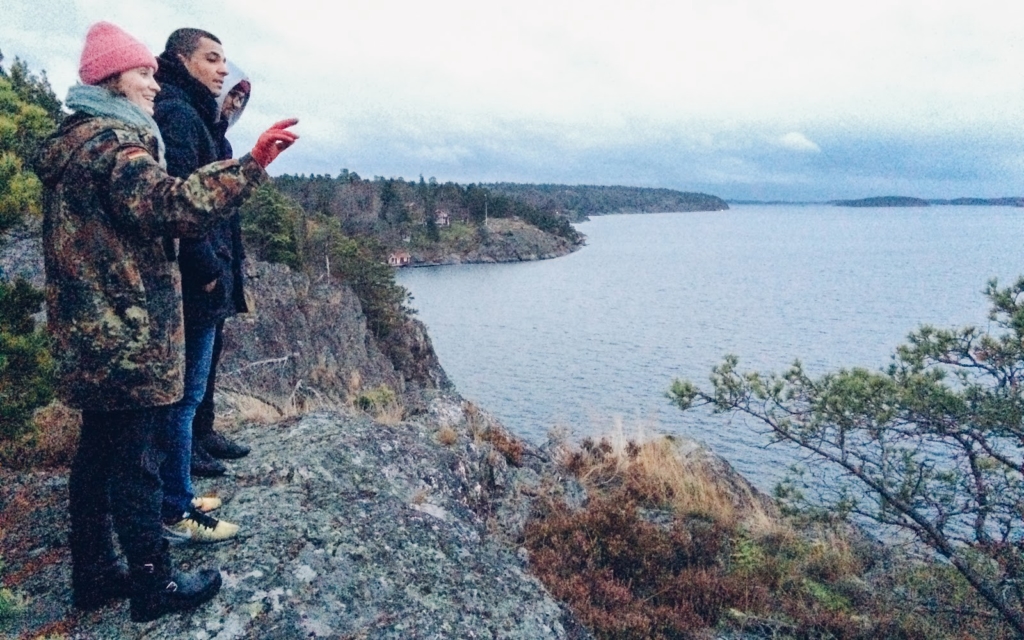
4. Put your stinky fishes on the table
This method will probably always feel a bit like a love-hate relationship. We guess that lies in the nature of it. So what is it about? Even in the best teams, there’s usually a few things going on which no one wants to talk about. But just as the stinky fish, the longer you avoid it, the worse it gets.
So after having built enough trust in your team it’s time to overcome your fear and dare to put your stinky fishes on the table. Just give everyone a few post-its, draw a stinky fish on a poster and share. We know it’s tough and may feel uncomfortable in the beginning, but trust us, it will be worth it — afterwards. You’re free to discuss your stinky fishes in the team but don’t feel the pressure of having to solve everything right away.
We had a huge stinky fish on the table from the beginning which was where to base our agency after the internship and we could write a book about it. It took us half a year to solve it but eventually, we did. By acknowledging the situation from the start we knew how we felt and were able to constructively work on a solution early on.
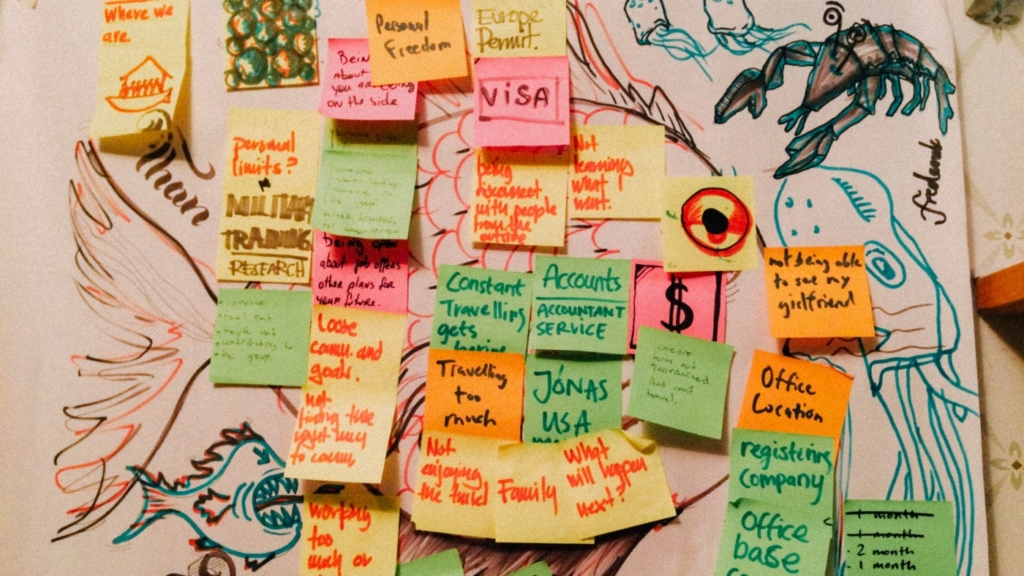
5. Never stop building your team culture
Building your team culture is a continuous effort. It’s thus important to never lose track of working on building your team. The good news is it will come much more naturally over time as you establish a team culture based on friendship and trust. And ultimately there are few things better than showing up to work every day with a good feeling.
Apart from investing time in regular activities to build your team, there are new challenges in line to keep a motivated and creative atmosphere or to onboard new members into an existing culture. For example one of the steps we’ve taken is to introduce inspirational Mondays where we have breakfast and share things that inspire us whether personal or work-related.
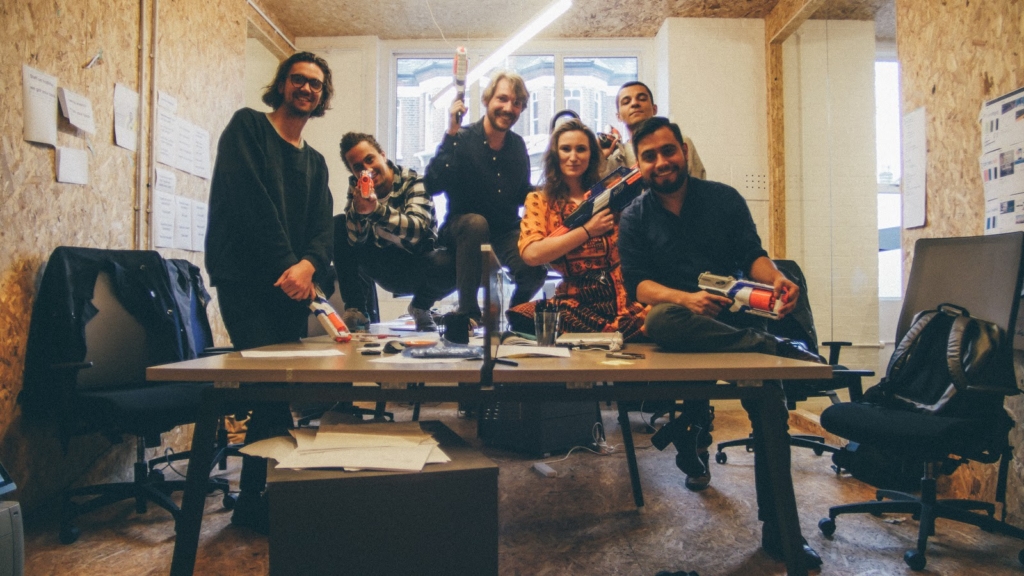
As your team grows with shared experiences and working with tools together, you will develop the ability to react to almost any situation that might show up down the road. Nowadays, we conduct less regular meetings to build our team but instead utilise methods spontaneously and on the go. Having built the trust and friendship in your team to talk about anything that’s going on at any given time empowers your team to deal with anything that comes up.
In total, we spent about five meetings and four full days dedicated to simply building our team before threading the topic on what exactly it was we wanted to be doing as an agency and building our brand.
Like any other team we’ve had to go through rough times and conflicts but we’ve always had a strong foundation to fall back on .. Based on friendship, trust and empathy which we built during countless hours of sharing, listening and experiencing together. Combined with the tools we developed, it enabled us to resolve situations and come out stronger.
Regardless how advanced your processes and preparations are, shit always happens. When it does, your culture will determine how well you cope with setbacks and conflicts.
It’s possible to fix and adapt your product or process at a later stage. However, if you want to fix a broken culture after a serious conflict in the team, it’s most likely too late. So next time you start a new project with a new team, we hope you’ll invest the time and effort to consciously build a meaningful team culture!
Have you experienced the impact of consciously building a team culture? We would love to hear your stories and feedback in the comments section.
